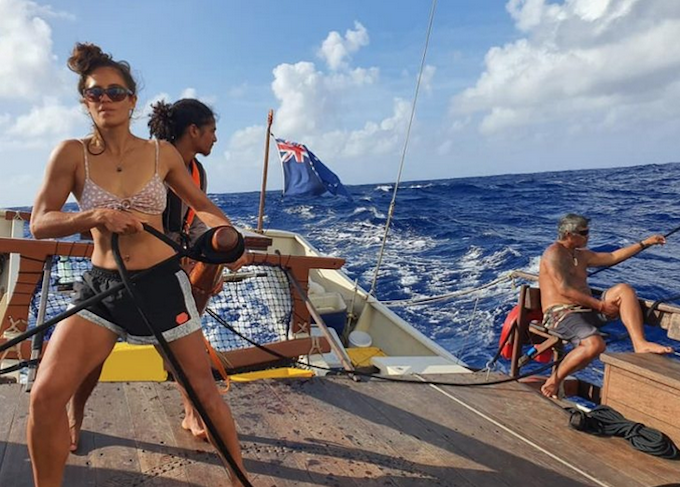
By Jason Brown
Tens of thousands of Cook Islanders celebrated 57th Constitution Day events these last weeks.
Not just in the homeland, but overseas as well, with communities across New Zealand, Australia and beyond celebrating language, dance, culture and other arts.
How many in all might be celebrating?
- READ MORE: Cook Islanders ‘suprised’ by election results
- Other reports on the Cook Islands elections
With 12,000+ in the homeland, 80,000+ in New Zealand, and 22,000+ in Australia? A conservative estimate would have to start at 126,000+ Cook Islanders worldwide, including perhaps 6000 others worldwide.
Fast-forward seven years from those 2016 census figures? Closer to 150,000 total Cook Islanders around the planet.
Not counting tens of thousands more second, third, fourth generations who may identify by different heritage.
Some 150,000 Cook Islanders some time last week — and at least another 150,000 partners and papa’a family and friends. Hundreds of thousands around the world marking 57 years since the first constitution day on Wednesday, 4 August 1965.
Surge for #CookIslands
Boosted by overseas news coverage of the 2022 general elections, social media networks surged with #CookIslands content via public updates — 12,000 on Facebook alone.
Many more pics, video and jokes, laughs, tears and aro’a shared privately between profiles, groups, and chat apps.
Combined online audience for Cook Islanders?
Easily in the millions.
Most precious, video from home.
For one day — but really a few weeks — homelanders largely put aside politics, questions, controversy and criticism after what one veteran politician called the “quietest” election in a long time.
A world-changing pandemic, and an entire industry vanishing almost overnight? Saw generations of homeland Cook Islanders catching a breath after nearly 40 years of exponential tourism growth, from when the Rarotongan Hotel first opened in 1982.
Empty … almost … everything?
Suddenly, for the first time since then, four decades later — empty roads, empty beaches, empty .. almost … everything?
Empty vistas led to a lot of Cook Islanders falling in love with their own home again, seeing it empty yet afresh; friendly like the “old days” in the 1970s. Easier to see what’s lost when suddenly it’s back again?
More flowers, hugs, kisses — time to pray, think, talk and, yes, the magic of the islands.
Cook Islanders kept breathing through a low-key campaign, voting then celebrating constitutional self-governance; following 57 years of colonialism, and a millennia or so of Māori dominion.
Voting 14 to ten against a ruling party, sure, but calmly, including three independents. And record votes for a third party.
All achieved without a ranked voting system like MMP in New Zealand, under plain old FFP — first past the post, not mixed member representation.
Voters drew on a long history of coalitions — creating their own systems of mixed representation, finally winning against a two-party majority after decades of political trial and error.
Strong vote for balanced power
Whatever new coalition eventually wins from all the backroom texts, calls, messages, emails and face-to-face negotiations — with the incumbent Cook Islands Party edging in front — Cook Islanders have shown a strong vote for balanced power.
Just as originally hoped for by a father of the Cook Islands. Before self-government, Albert Henry warned against party politics as a colonial divide-and-rule threat, aimed at Māori, Polynesian and Pacific Way unity.
Nearly six decades after that warning, Cook Islanders still prove an ancient instinct for what one coalition administration once termed #taokotaianga — a demand for solidarity.
Published as a Sunday newspaper for four years from December 1994, the Cook Islands Press was refounded in 2021 as an online news outlet, soft launching on social media with analysis of current affairs.












































